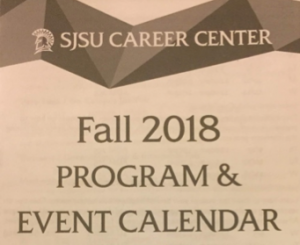By Stacey Nordlund
Earlier this year, I attended a conference at which SLIS director Sandy Hirsh spoke to the importance of thinking broadly about the skills we develop throughout the MLIS program. Many SLIS graduates are taking advantage of opportunities outside of the library realm because our skills are transferable to so many types of environments. Hirsh’s presentation included a pertinent quote from well-known librarian Stephen Abram: “LIS skills are good currency in this world – but only for those with the flexibility and insight to exploit the opportunities.”
With this in mind, I have been conducting informational interviews with librarians working outside of the traditional public, academic, and school library spheres. One librarian I recently chatted with, Wendy Reynolds, is a government librarian in Toronto, Ontario. She kindly took the time to answer a few questions – on a weekend, no less! – about her work and her thoughts on librarianship in general. Wendy is the Manager of Library Client Services at the Ontario Legislative Library, an organization which serves as a resource for the elected Members of Provincial Parliament who serve in the Legislative Assembly of Ontario.
Stacey: What is a typical day for you at the legislative library, or is there such a thing as a “typical” day for you?
Wendy: My days are typically spent in meetings. Library Client Services comprises 23 staff who answer questions from Members and their staff, constituency office staff, and staff of the Legislative Assembly. We also conduct media monitoring services, handle document delivery, and perform collection maintenance. As manager, I look at the services we deliver and the way we deliver them, and help resolve issues which may be outside of our usual range of services. I also collaborate with others. Working with colleagues in other branches and divisions, I have the opportunity to work on projects which have an impact on the way that the Office of the Legislative Assembly stores, accesses, and reuses information.
Stacey: How long have you held your current position? What path led you to this job?
Wendy: I’ve enjoyed a really “bendy” career path. I started out as a cataloguer at Statistics Canada. I joined the Federal Court of Canada as their reference librarian a couple of years later. I spent just over 8 years at the Court, where I began to supervise staff, and later worked as the Systems Librarian. This experience has proven invaluable, and solidified my interest in emerging technologies and their application to libraries. In 2000, I moved to Toronto and joined Donahue and Partners, a law firm within the Ernst and Young umbrella. The firm dissolved a few years later, and I moved on to the Ontario Securities Commission. This was a small but very busy library, and I was able to participate in a number of really interesting initiatives, including leaving the library to take on the role of Information Manager. In 2007, I moved to the Workplace Safety and Insurance Appeals Tribunal where I learned a great deal about project management and leadership. This experience has proven invaluable in my current position at the Legislative Library, which I started in 2009.
Stacey: What challenges do you face in your position as Manager of Library Client Services?
Wendy: This is the largest team I have ever managed. Although I have experience in performing all of the functions of my team, I do not have direct experience of delivering those services specifically within the Legislature. It’s a challenge to understand the context of the team’s work – if I don’t live the pressures and satisfactions that they labor under, can I really advocate on behalf of my staff? My solution is to ask lots of questions, seek opinions and be willing to experiment.
Stacey: You’ve had the opportunity to work in diverse types of libraries and information centers. What do you think are important emerging trends and developments consistent across special libraries in general?
Wendy: Fewer and fewer people are coming into our physical spaces. Libraries need to re-conceive themselves as places which do more than store books. eBooks are going to be a significant challenge – licensing in particular. It feels like publishers would much rather sell directly to users, but there are pitfalls for all market participants if this happens. Libraries have a place in the information universe; we have to be better at staking our turf, and be more creative in our vision of that role.
Stacey: Let’s conclude by bringing it back to the student perspective. What courses do you think are important for MLIS students who have yet to determine specific career goals? Do you have any other advice for MLIS students?
Wendy: Get a variety of experience. Take courses which allow you to interact with practicing professionals. Don’t overspecialize: take courses in cataloguing, taxonomy, and/or metadata, even if you want to be a reference librarian. Make sure you get a good grounding in technology; if you are afraid of computers, find another profession. Also, take every opportunity you can to learn how to speak to groups. Librarianship is no place for the timid.
Stacey is a library assistant with the Toronto Public Library, and recently completed her fifth semester at SLIS. Her professional interests include emerging technologies, reference services and instruction. Contact her at staceynordlund[at]gmail[dot]com.

